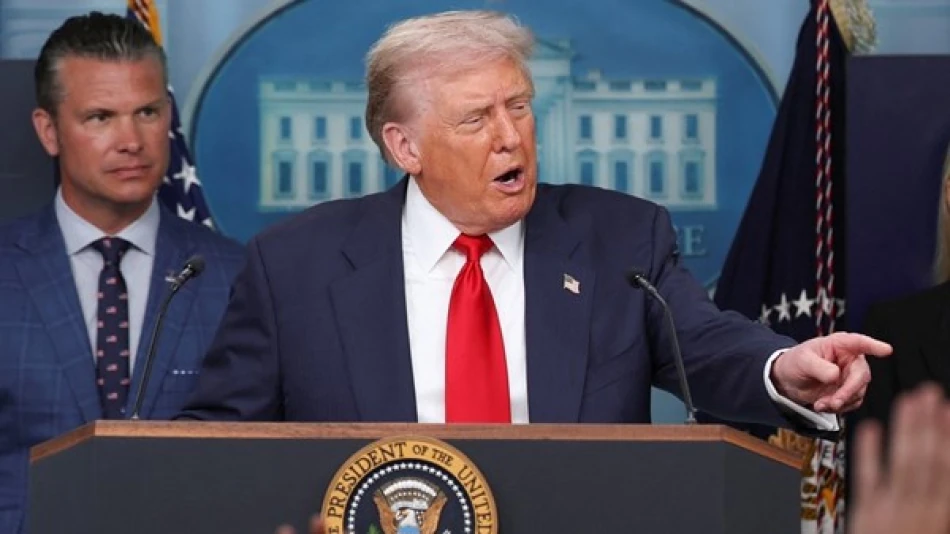
Trump Set to Unveil Nominees for Federal Reserve Leadership
Trump Narrows Federal Reserve Chair Search to Final Candidates, Signaling Imminent Policy Shift
President Donald Trump announced Wednesday that he has narrowed his selection for the next Federal Reserve Chair to three or four candidates, promising to reveal his choice "a little early." This decision could reshape U.S. monetary policy and have far-reaching implications for global markets, inflation control, and the dollar's international standing.
Stakes Higher Than Ever for Fed Leadership
The Federal Reserve Chair position represents one of the most influential economic roles globally, with decisions affecting everything from mortgage rates to international trade flows. Trump's selection comes at a critical juncture as the U.S. economy navigates post-pandemic recovery, persistent inflation concerns, and mounting fiscal pressures.
Unlike previous Fed appointments, this choice carries additional weight given Trump's historically contentious relationship with Federal Reserve independence. During his first term, Trump frequently criticized then-Chair Jerome Powell's interest rate decisions, breaking with the traditional presidential practice of avoiding public commentary on Fed policy.
Market Implications and Investor Expectations
Financial markets are closely watching Trump's selection process, as different candidates could signal dramatically different approaches to monetary policy. A more hawkish appointee might prioritize aggressive inflation fighting, potentially leading to higher interest rates that could strengthen the dollar but pressure stock valuations.
Conversely, a dovish selection could signal continued accommodative policies, potentially benefiting equity markets while raising concerns about long-term inflation control. Bond traders are particularly sensitive to these dynamics, as Fed policy directly impacts Treasury yields across all maturities.
Global Central Banking Trends
Trump's Fed choice comes as central banks worldwide grapple with similar challenges. The European Central Bank continues its own policy recalibration, while emerging market central banks from Brazil to India face the dual pressures of domestic growth needs and dollar-denominated debt burdens.
The selection also occurs against the backdrop of increasing questions about central bank independence globally. From Turkey to Argentina, political pressure on monetary authorities has intensified, making the U.S. Fed's traditional autonomy even more symbolically important for global financial stability.
Political and Economic Calculations
Trump's promise to announce his choice "a little early" suggests strategic timing considerations, potentially aimed at reassuring markets or fulfilling campaign commitments. The accelerated timeline could also reflect confidence in his preferred candidate's confirmation prospects or a desire to establish monetary policy direction before other economic appointments.
The narrowed candidate pool likely reflects intensive vetting not just for technical qualifications, but for alignment with Trump's broader economic agenda, including trade policy, regulatory approach, and fiscal coordination. This selection will serve as an early indicator of how Trump's second-term economic team plans to address challenges ranging from government debt levels to international competitiveness.
Most Viewed News

 Layla Al Mansoori
Layla Al Mansoori






